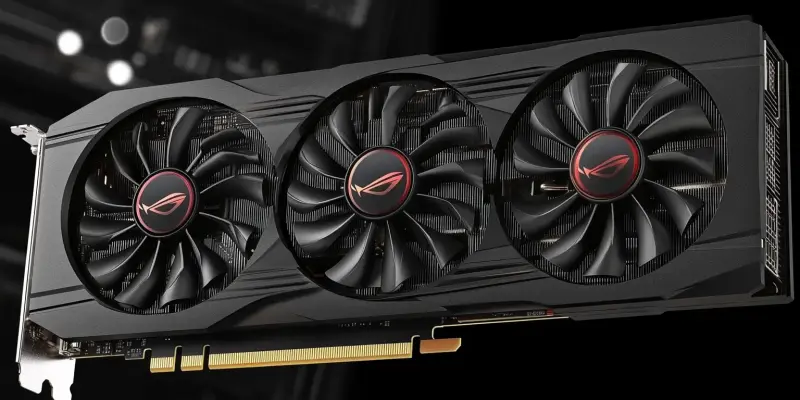This time, the spotlight is on AMD’s RX 9070 graphics card, which can be upgraded by flashing its BIOS to that of the more powerful 9070 XT variant. A notable success on the PCGamesHardware forum revealed that this modification allows the RX 9070 to achieve higher performance levels by unlocking greater power limits and clock speeds. Specifically, the modification enables the card to boost its clock speed from the original 2.6GHz to an impressive 3.1GHz and the TGP from 220W to 317W. These enhancements propel its performance beyond that of a stock RX 9070 XT in both synthetic benchmarks and real-world gaming conditions.
The Revival of GPU BIOS Modding
The recent success with the RX 9070 BIOS mod marks a significant revival of a once-popular practice among GPU enthusiasts.Although technological advancements and inherent risks have caused the decline of BIOS modifications over time, this achievement demonstrates that substantial performance gains remain within reach for those daring enough to experiment. Users benefit from this approach by enhancing their GPUs’ capabilities without incurring the costs associated with purchasing higher-end models.
Moreover, the resurrection of this practice is partly driven by the broader trend of consumers seeking cost-effective hardware upgrades.The RX 9070 XT initially emerged as a favorable choice due to its slight price difference from the non-XT variant, offering better value for incremental spending. However, the ability to transform the RX 9070 into an XT-level performer through a BIOS flash makes it an equally compelling option for budget-conscious gamers and tech enthusiasts.
Caution and Considerations
While the allure of unlocking extra performance through a BIOS mod is strong, it is crucial to approach this modification with caution. This particular BIOS mod appears to work best with RX 9070 cards branded by ASUS, and success with other brands may not be guaranteed. The risk of “bricking”—rendering the card unusable—is a critical consideration, making it advisable only for knowledgeable users or those with GPUs that feature dual BIOS settings.Dual BIOS provides a safety net, allowing users to revert to the factory settings if the modification fails.
It is equally important to recognize that undertaking a BIOS modification can void the card’s warranty, further underscoring the need for careful planning and execution. Users should weigh the potential benefits against these risks and consider the long-term implications before proceeding.For those undeterred, the rewards can be significant, providing a pathway to superior performance without the financial outlay typically associated with such upgrades.
Impact on the Market and Community
The success of the RX 9070 BIOS flash could have broader implications for the GPU market and the enthusiast community. As more users explore and share their results, there is potential for a shift in consumer behavior, with increased interest in modding as a viable upgrade strategy.This trend could prompt manufacturers to consider how they position and price their product tiers, particularly if more models can be modified to achieve higher performance levels.
From a community perspective, the revival of BIOS modding fosters a culture of innovation and resourcefulness, inspiring users to experiment and push the boundaries of their hardware.It also reinforces the notion that high performance can be achieved through intelligence and creativity, rather than financial investment alone. As more success stories emerge, the knowledge base within the community expands, offering guidance and support to newcomers seeking to undertake similar projects.
Conclusion: A Path Forward for Savvy Consumers
The idea of modifying BIOS to boost GPU performance is back, exciting tech enthusiasts. The focus this time is on AMD’s RX 9070 graphics card, which can be upgraded by flashing its BIOS to that of the more powerful RX 9070 XT model. This process was highlighted on the PCGamesHardware forum where a successful modification was reported.This change allows the RX 9070 to unlock higher power limits and clock speeds, significantly enhancing its performance. Specifically, this BIOS flash lets the card’s clock speed increase from the original 2.6GHz to an impressive 3.1GHz while raising the Total Graphics Power (TGP) from 220W to 317W.These improvements push the RX 9070’s performance beyond a stock RX 9070 XT in both synthetic benchmarks and actual gaming scenarios. The RX 9070, through this BIOS modification, transforms into a powerhouse, delivering superior gaming experiences and more robust performance metrics, making it a more enticing option for gaming enthusiasts and performance seekers alike.

